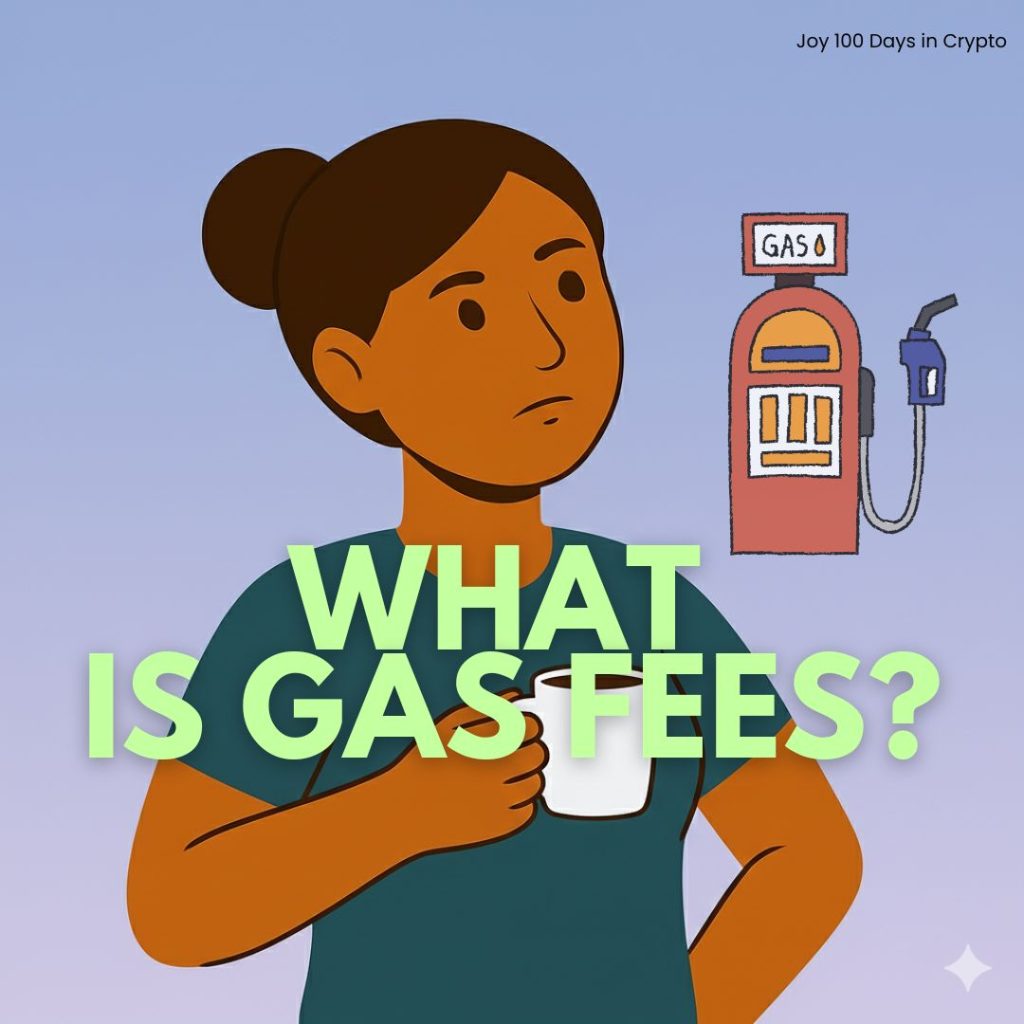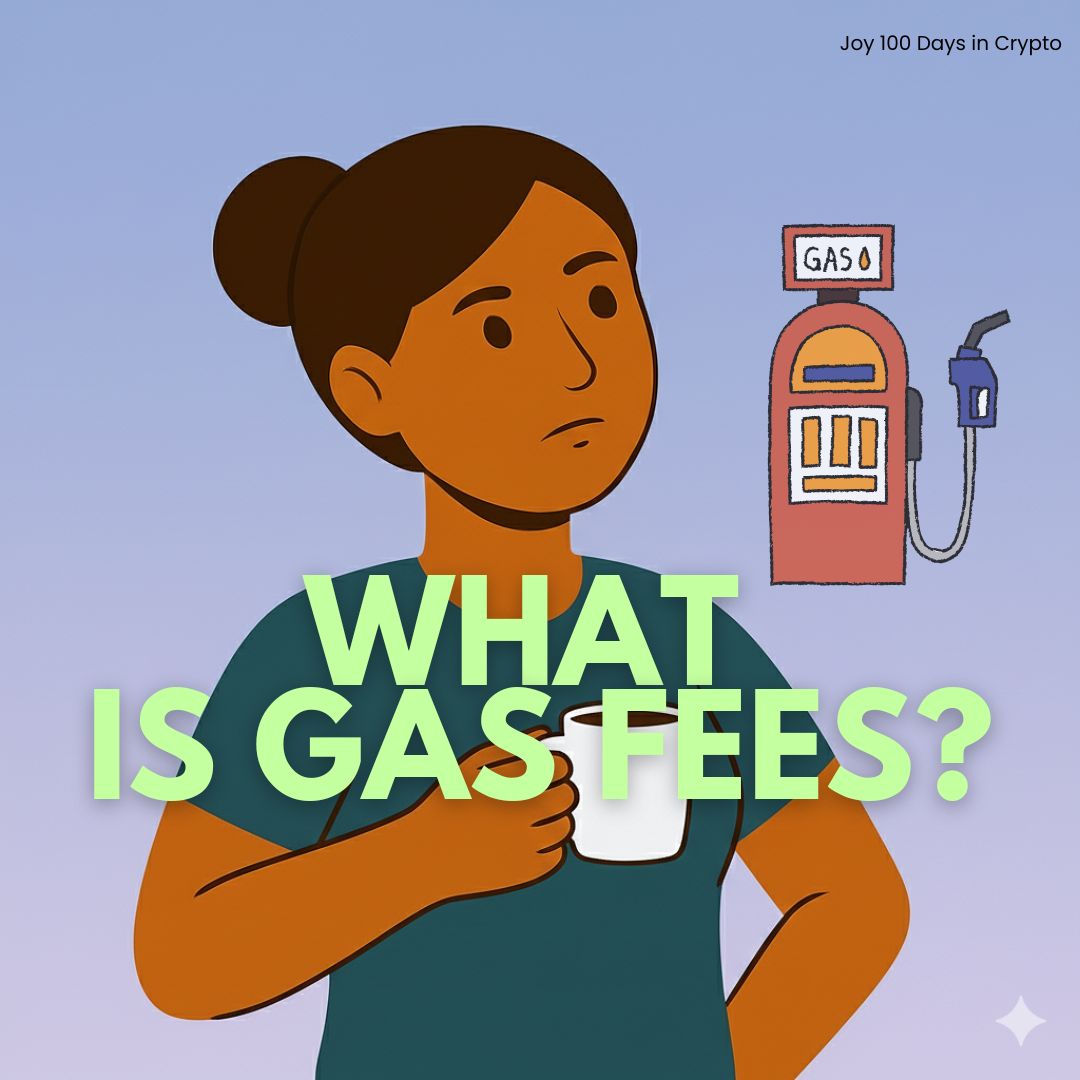So, by now, you already know what a wallet is (Day 10), what public and private keys are (Day 11), and why your seed phrase is like the ultimate master key (Day 12). Yesterday, in Day 14, we talked about decentralization, how you, and only you, are in control of your wallet.
Now, let’s answer another common question:
“Why does it cost me money just to send crypto?”
That’s where gas fees come in.

What Are Gas Fees?
Think of gas fees as the service charge of the blockchain. Every time you send crypto, swap tokens, or interact with a smart contract, someone has to do the work of verifying and recording your transaction.
That “someone” is the network’s miners (for proof-of-work) or validators (for proof-of-stake). (We’ll dive deeper into how that “someone” works in the upcoming posts, remember, we’ve got 100 days!) They’re like the cashiers and clerks at a busy supermarket, making sure every item gets scanned and every bill is paid.
The gas fee is your way of saying “thanks for processing my transaction.”
A Relatable Example
Imagine you’re stuck in traffic on EDSA during rush hour. If you just sit there, you’ll eventually reach your destination, but it’ll take forever. If you want to get there faster, you might pay for Skyway instead, less traffic, faster processing.
That’s basically how gas fees work.
- Pay more = your transaction gets prioritized.
- Pay less = you’ll still get through, but you might be waiting in line.
See the network fee? That’s the price I need to pay for swapping ETH to USDC ($1.56).

Why Are Gas Fees Important?
Gas fees keep the blockchain running smoothly and securely. Without them, there would be no incentive for validators or miners to process transactions. It’s part of what makes decentralization work, the network is powered by its users, not a single company.
The Not-So-Fun Side
Gas fees can sometimes be… brutal. Especially on Ethereum during busy times (remember those meme coin surges? 😅). You might end up paying more in gas than the actual token you’re trying to send.
Pro Tip
If you’re just starting out, don’t panic. Gas fees vary depending on:
- The blockchain (Solana fees are way cheaper than Ethereum, for example).
- The time of day (less busy hours = cheaper fees).
- The type of transaction (a simple send vs. a complex smart contract).
Final Thoughts
Gas fees may feel like an annoying “extra,” but they’re what keeps blockchains alive, secure, and decentralized. Just like you budget for service charges when eating out, you’ll want to factor in gas fees when moving crypto.
At the end of the day, gas fees remind us: crypto isn’t free, but it’s powered by us, the community, not banks.
👉 Have you ever paid more gas than the actual crypto you were sending? Share your story—I’d love to know I’m not the only one who’s been there!

Leave a Reply